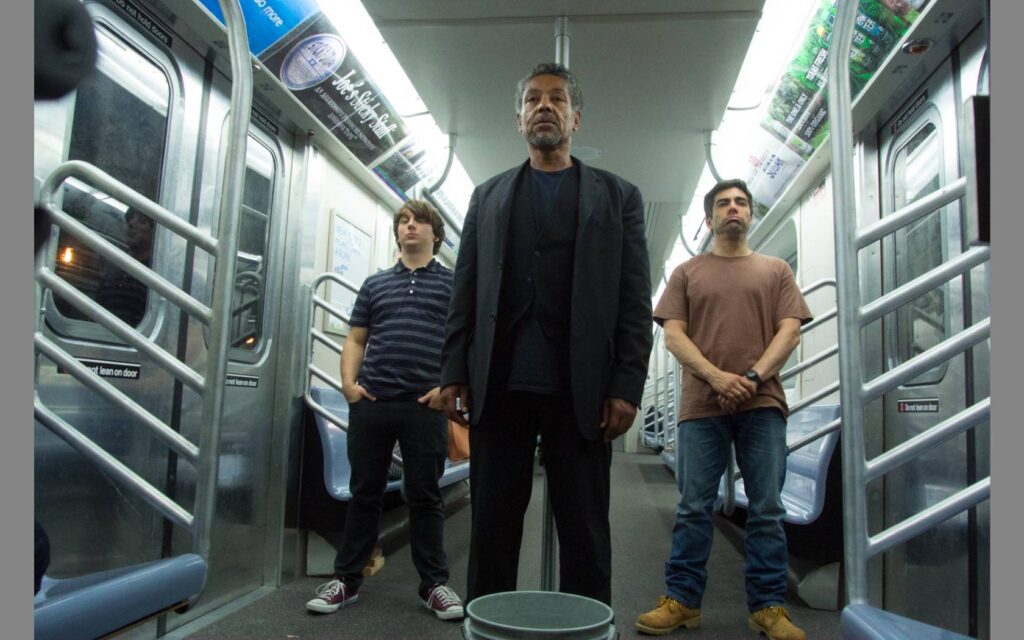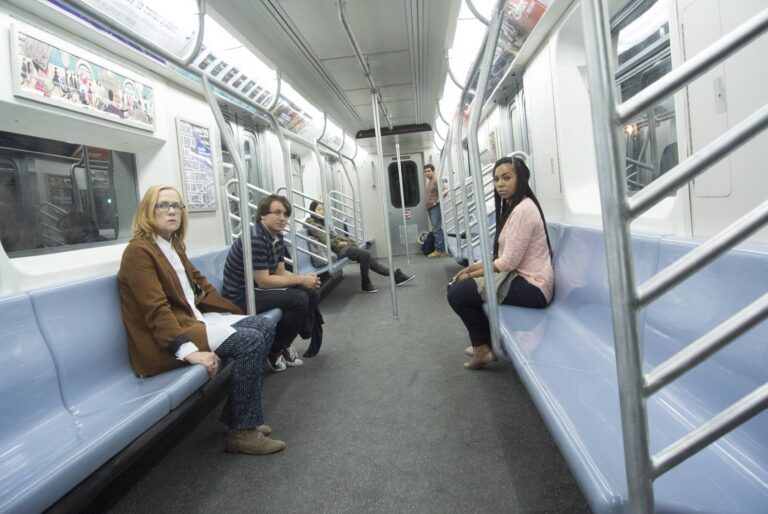New musical Stuck, directed by Michael Berry and adapted from the stage production of the stage name, purports to teach us that we should look beyond the surface, that we shouldn’t judge each other based on our own prejudices and preconceived notions. The irony lies in the fact that Berry’s film can’t be bothered to develop its six principal characters beyond the most basic of stereotypes, and thus its “message” falls flat.
The players, all trapped in a subway car, are Lloyd (Giancarlo Esposito), a homeless man with a fondness for reciting Shakespeare; Caleb (Broadway mainstay Gerard Canonico), a budding artist who we first meet hiding around a corner and surreptitiously snapping photos of Alicia (Arden Cho), a Korean-American dance student; an undocumented immigrant (Omar Chapparo) working multiple jobs to feed his family; a short-tempered African-American woman (R&B singer Ashanti) grappling with a complex decision about her future, and a middle-aged white woman (Amy Madigan) reeling from a recent loss.
If you’re curious why I’ve only named three of the characters, it’s because Stuck cares so little about making these people feel like actual human beings that it never bothers to introduce us to the others. Instead, the film’s primary goal seems to further the notion that nearly everyone alive is teeming with hatred and disdain for people they see as “other.”
Madigan chastises another passenger for provoking Lloyd — “you don’t know what a person like that is capable of,” she warns — as if there’s something inherently dangerous about a soft-spoken, slightly disheveled gentleman who gracefully and eloquently recites Hamlet. Meanwhile, Alicia rants about illegal immigrants “enjoying the benefits of our society” without contributing their fair share, and Chapparo’s character spews bile at Ashanti: “you people have a black president and still kill each other like it’s your job.”

The film also makes the case that Caleb’s stalking of Alicia is acceptable because it lacks any nefarious intent: he just wants to sketch her. But lurking around corners and taking photos without someone’s permission is inherently creepy, and the film completely fails to reckon with the reality of this. In fact, Stuck paints Alicia — the victim of a violent sexual assault that we glimpse in a flashback — as villainous for being rude and dismissive of Caleb.
“Did you think I was some cute little Asian girl that would just cover my mouth and giggle?” she demands after Caleb whines about her refusal to engage in conversation with him. Clearly, this is precisely what the film expects: agency is not a luxury afforded to Stuck’s females, as further evidenced by multiple attempts to convince a character to carry her pregnancy to term, even when she firmly and emphatically states this is not an option.
As for the music, it’s mostly fine. Ashanti and Madigan are each given numbers that would be fairly emotional if we felt any connection to their characters, and Esposito — the film’s most interesting personality, perhaps because he’s the only one that seems genuinely decent — entertains with every word he utters. But catchy tunes can’t distract from Stuck‘s narrative failures, nor its inability to craft a single moment that doesn’t feel contrived.

